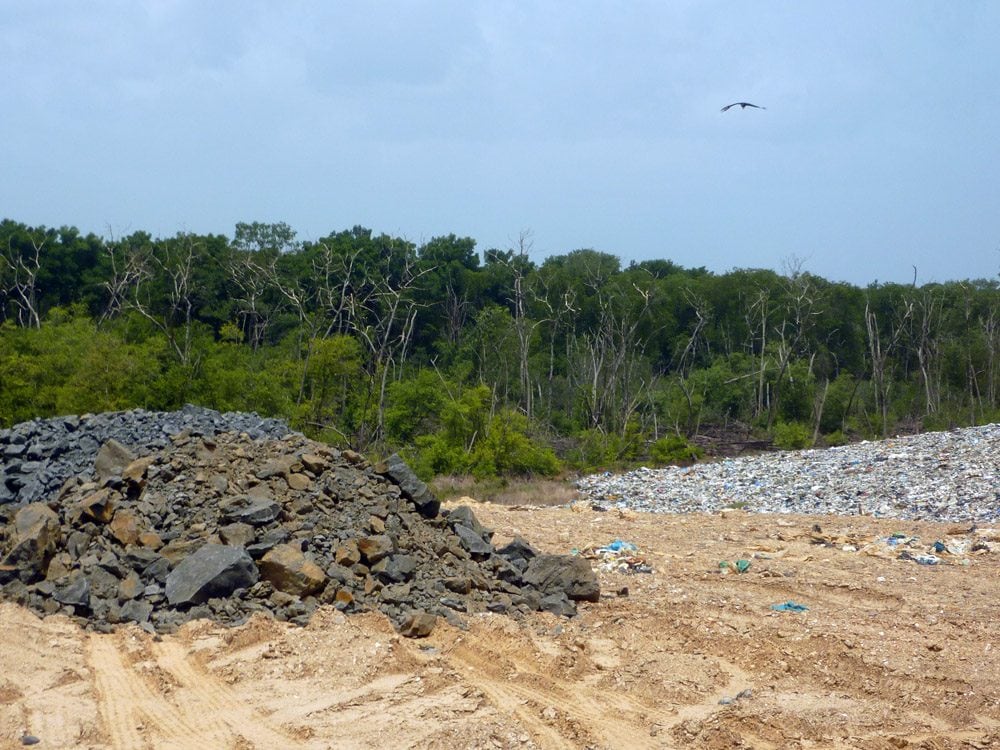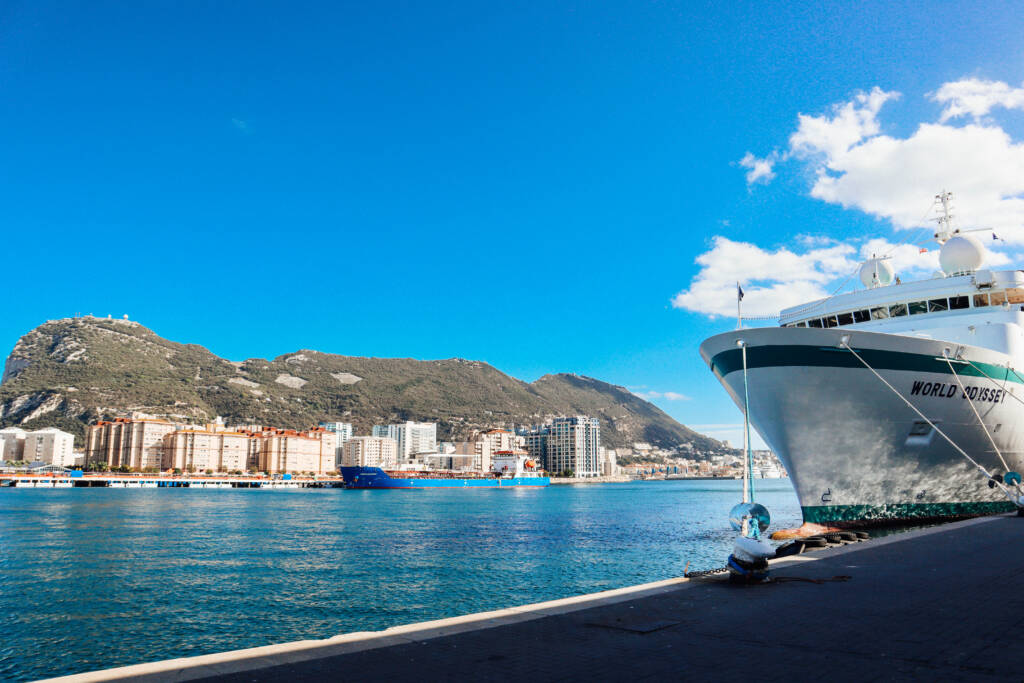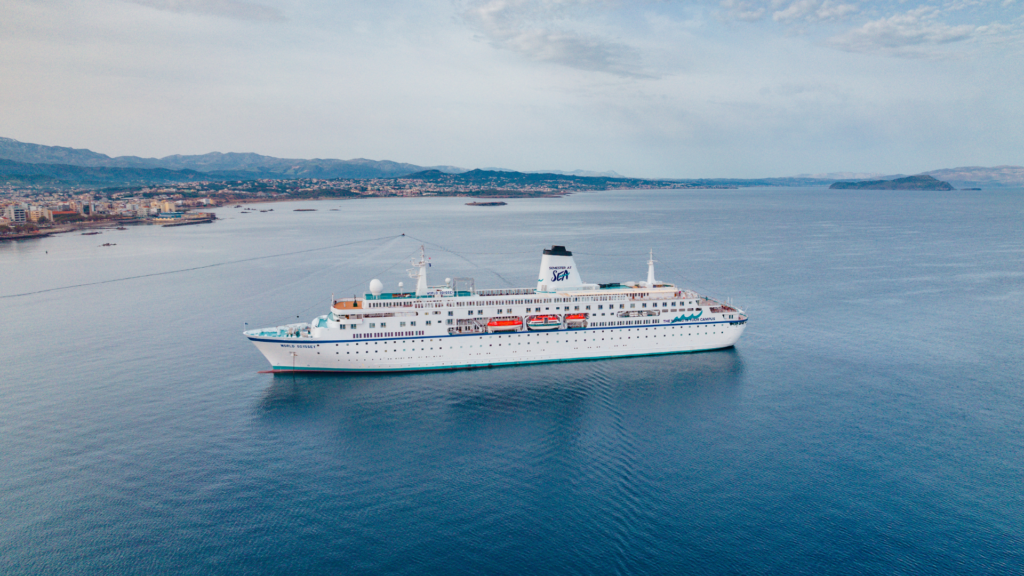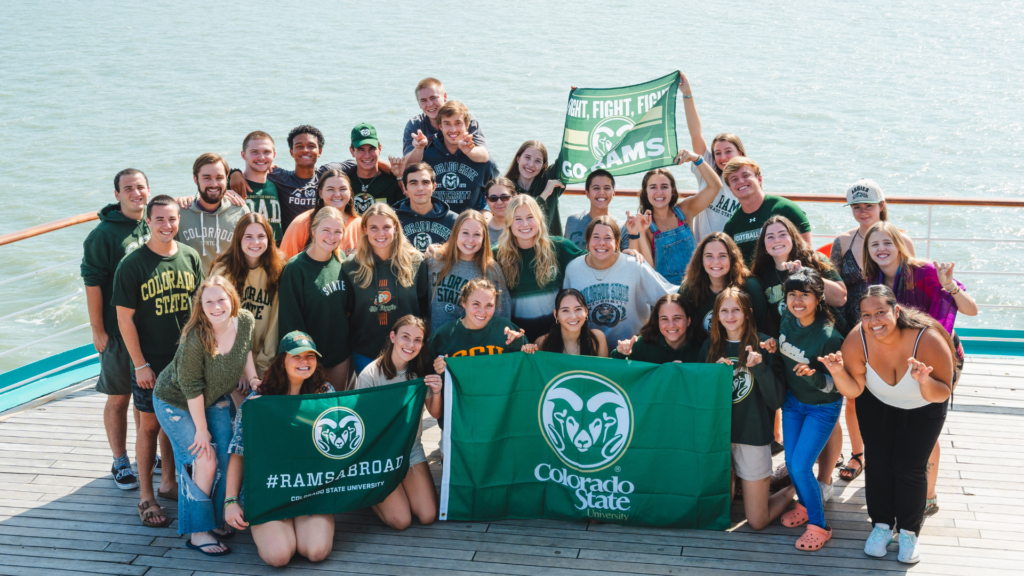Garrick Louis wanted his students to see this. The 17 undergraduates in his course “Understanding Water & Sanitation” didn’t have to wait long after the embarkation of this voyage to get a complete introduction to the infrastructure of waste removal. Louis grew up in Trinidad, the first port of the Maymester 2011 voyage, so this was all very familiar. When designing his course’s FDP (faculty directed practicum) to examine Trinidad’s water and sanitation infrastructure, he included a stop at Beetham Landfill for a reason. The problem with Beetham Landfill is that it should never have been here in the first place. It began decades ago when people started leaving their garbage along the side of Beetham Highway, the main road through the southeast side of Trinidad’s capital, Port-of-Spain. Over time, the scale of the illegal dumping grew. By 1980, the government was forced to step in and play a role. Dozens of small, illegal dumps around the islands were closed down, and a decision was made to direct garbage to the Beetham site until a more permanent solution could be determined. Thirty-one years later, the garbage still rolls in. Eleven hundred trucks dump their contents here daily – about ten cubic yards per truck. That works out to 840 tons a day. Today, Beetham Landfill is a colossus, having grown to more than 227 acres (92 hectares). It is a monument to failure. A mistake that keeps on being made, day after day.
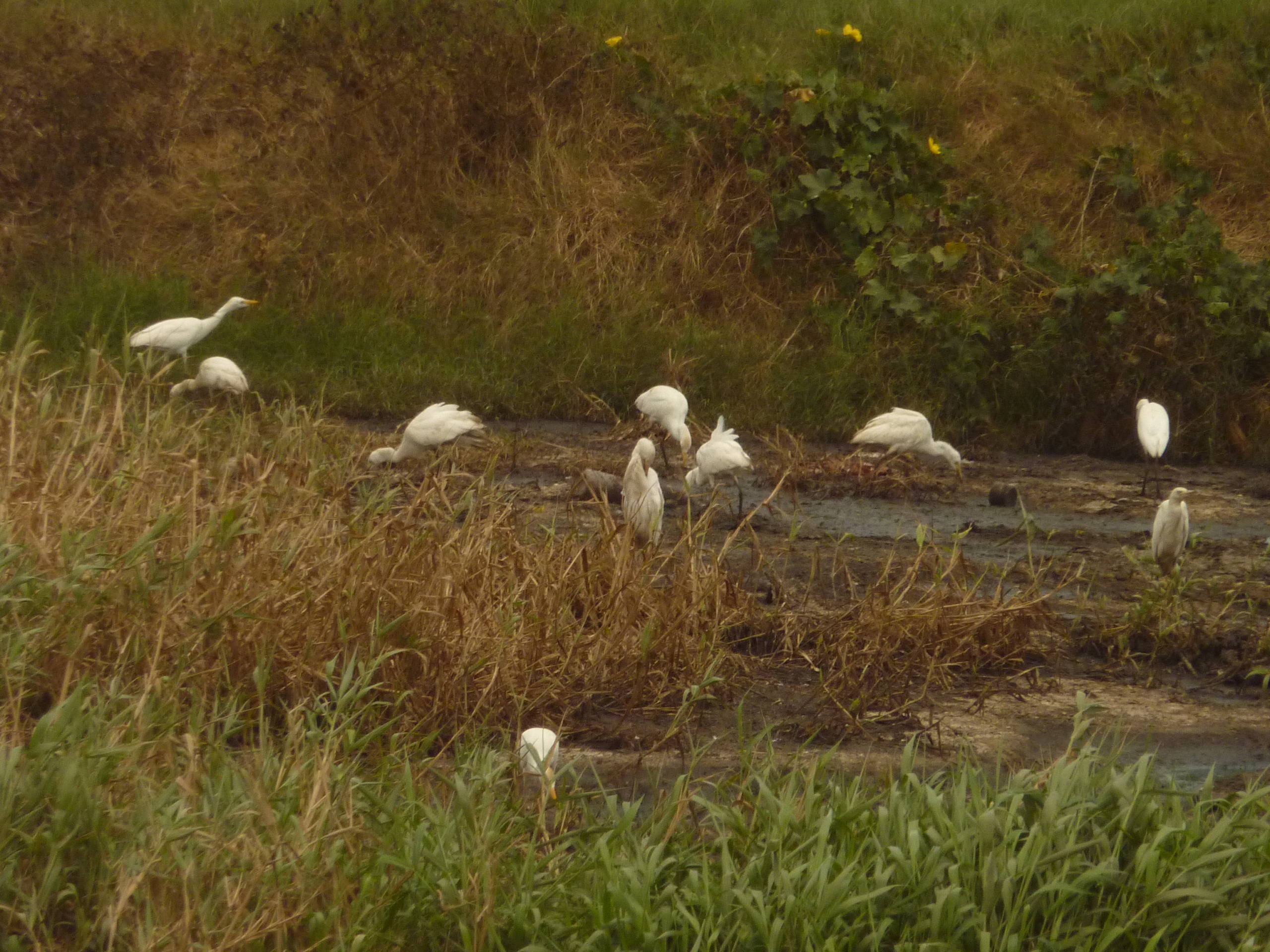
The site is not lined, which means that contaminated run-off seeps into the groundwater and goes directly into adjacent Caroni Swamp, the nation’s largest mangrove wetland. The potential for environmental damage, including permanent damage to the ecosystem, is serious.
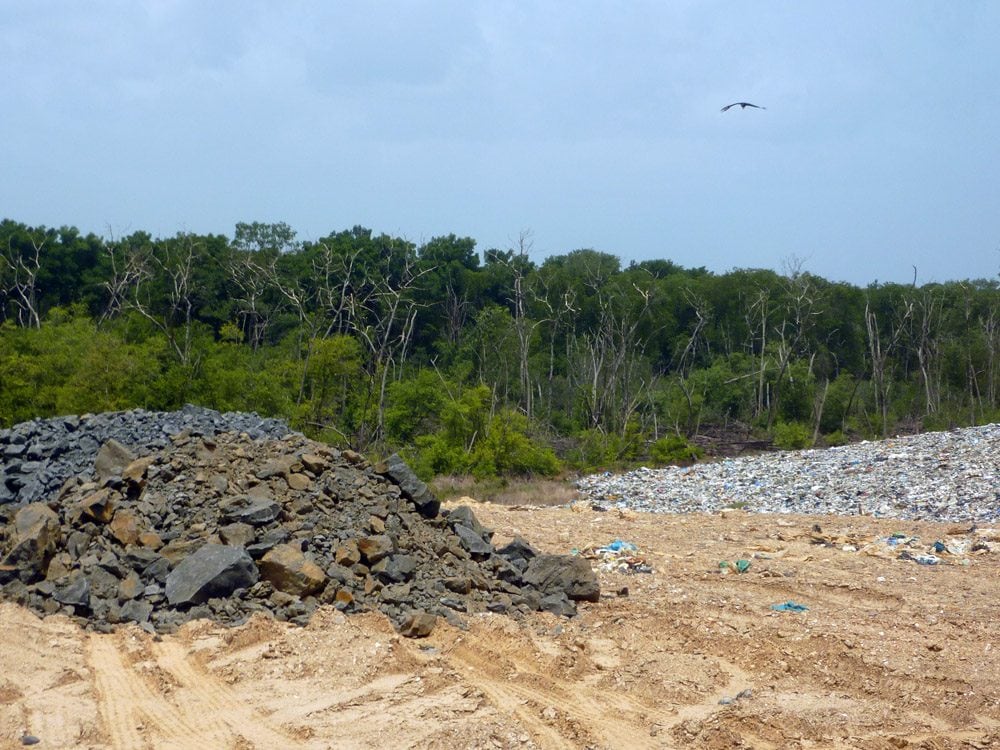
The problem is two-fold. If Beetham were to close, there is no consensus about where to locate the new landfill. It’s an inherently thorny process, making a decision that will not satisfy everyone and cannot achieve consensus. In the U.S. decisions about landfill locations are most often made by a regulatory body which, according to Louis, is appointed and therefore would not face the same kind of political implications as an elected official. But in Trinidad, the decision for the location of a new landfill is up to lawmakers. And it’s a decision with little immediate upside and plenty of downside for officials who have to think about winning re-election. 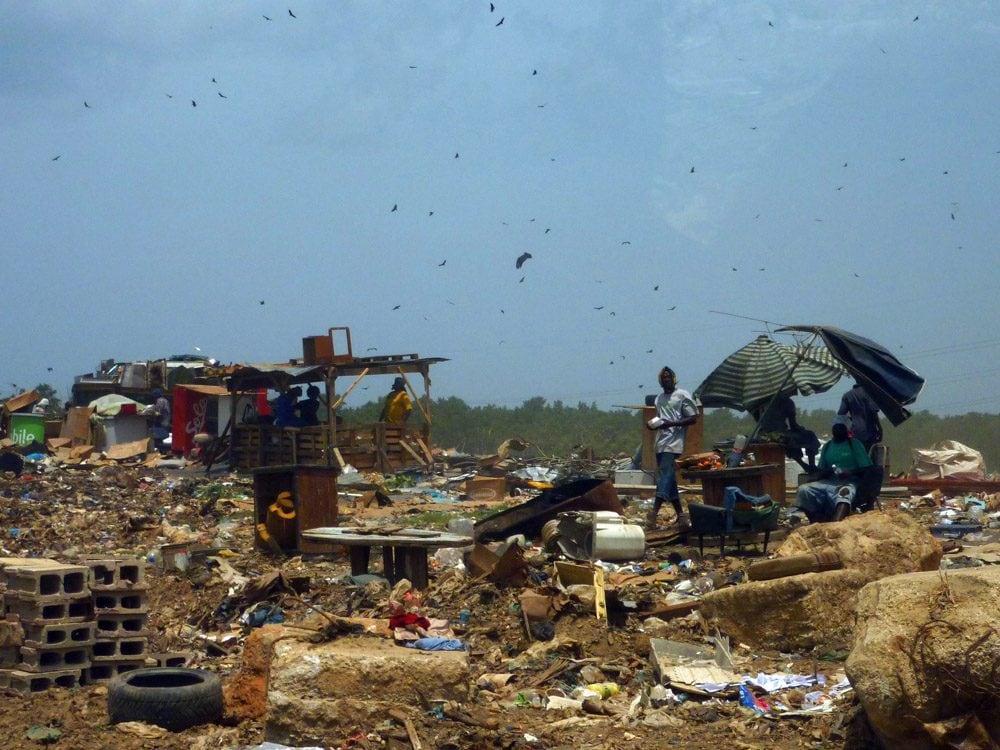 The second problem is economic. For many in the area, Beetham Landfill provides a kind of rude subsistence. Garbage pickers rely on the landfill for their livelihood. Foot traffic isn’t allowed through the front gate into the landfill, however posted signs only state the health risks of scavenging on the site. Trespassing on the landfill, it turns out, is not expressly prohibited. According to Steven French, a technical officer for the Solid Waste Management Company Limited (SWMCOL) which operates the Beetham site, this is public land and SWMCOL cannot prohibit access. French acknowledges the rights of those picking garbage to enter the landfill. He calls the work of these lawful trespassers “informal recycling”, and while it isn’t pretty, it is a key part of the economy in this sprawling district. There are enough votes here in the densely populated sector of Port-of-Spain to sway the political fortunes of individual lawmakers and the government as a whole. So the landfill that was never meant to be and should have closed years agocontinues to operate.
The second problem is economic. For many in the area, Beetham Landfill provides a kind of rude subsistence. Garbage pickers rely on the landfill for their livelihood. Foot traffic isn’t allowed through the front gate into the landfill, however posted signs only state the health risks of scavenging on the site. Trespassing on the landfill, it turns out, is not expressly prohibited. According to Steven French, a technical officer for the Solid Waste Management Company Limited (SWMCOL) which operates the Beetham site, this is public land and SWMCOL cannot prohibit access. French acknowledges the rights of those picking garbage to enter the landfill. He calls the work of these lawful trespassers “informal recycling”, and while it isn’t pretty, it is a key part of the economy in this sprawling district. There are enough votes here in the densely populated sector of Port-of-Spain to sway the political fortunes of individual lawmakers and the government as a whole. So the landfill that was never meant to be and should have closed years agocontinues to operate.
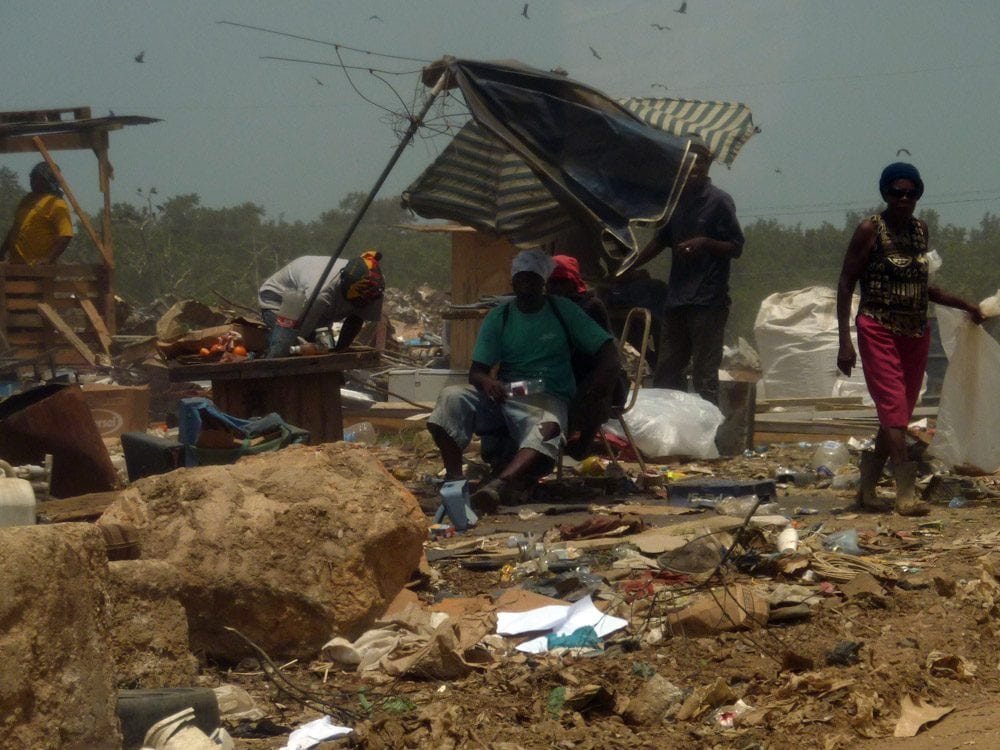
When are we likely to see the political will required to unlock this stalemate in Trinidad? “We aren’t there yet” says Professor Louis in reference to the political structure that can enact hard decisions in these matters, “in Trinidad and in most developing countries.” A key contributing factor is that solid waste management is not explicitly embedded within any of the eight U.N. Millennium Development Goals. “There’s no international pressure” on this issue, according to Louis. And, it seems, no consequences for inaction. So governments like the one in Trinidad are left to their own internal timeclocks to set up responsible and modern waste management systems. And with no targets to strive to for, no deadline to meet, and a legislative structure which all but ensures that meaningful action will be deferred, it’s exactly the mix of factors you’d need if you want to fail utterly.
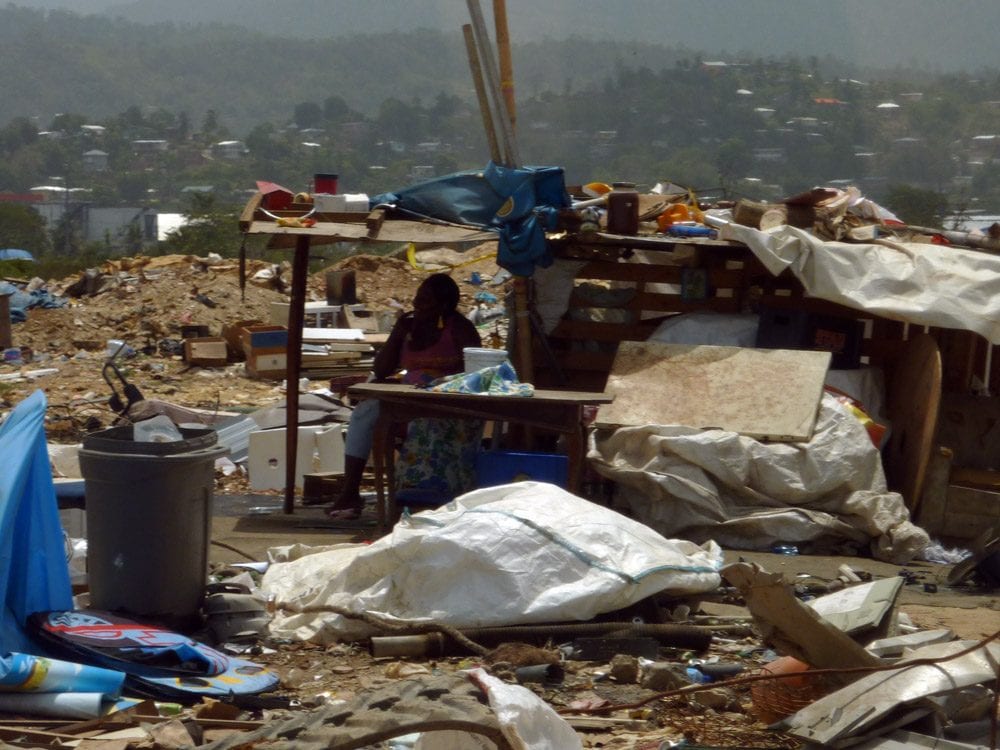
So what’s the takeaway for the students on the new Maymester voyage? Louis, who has spent a career active in issues of water and sanitation, offers two lessons. “First, you have to listen. Understand the situation. What’s the most appropriate approach for that community? You have to grasp the context of an individual community before you can make any progress on the MDGs.” Which is why Louis is such a proponent of what he calls “small systems,” locally implementable, small-scale technical solutions. “It puts the power of decision making into the hands of the people who have the need. We can help, but it must be their decision.” The second takeaway Louis hopes his students will grasp is the importance of individual action. “Every person has the power to effect change. My personal motto is ‘We can change the world’. Not ‘I’, but ‘we’.” Good advice for students who have come on this voyage to learn how the Millennium Development Goals are being pursued in the Caribbean & Latin America and who are exploring their own roles within those larger efforts.
